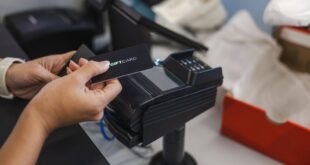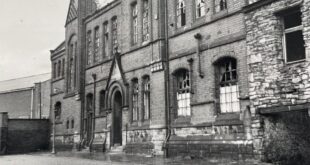A new blood test is the first to detect signs of breast cancer in the earliest stages when it can be treated “far more easily”, scientists have revealed.
The fast and non-invasive AI-powered test shows the subtle changes that occur in the bloodstream at the initial “1a” stage of the disease. A research team from the University of Edinburgh, who carried out the study, said these early indicators of the disease are not detectable using existing techniques.
A pilot study using samples from 12 breast cancer patients and 12 healthy patients showed the technique was 98% effective at identifying breast cancer at stage 1a. The study team said this new method could pave the way for a screening test for multiple forms of cancer, and they are now aiming to expand the work to involve more participants and include tests for early forms of other cancer types.
READ NEXT: Scientists warn of staggering number of people who may have an STI
Study lead Dr Andy Downes, of the University of Edinburgh’s school of engineering, said: “Most deaths from cancer occur following a late-stage diagnosis after symptoms become apparent, so a future screening test for multiple cancer types could find these at a stage where they can be far more easily treated. Early diagnosis is key to long-term survival, and we finally have the technology required.
“We just need to apply it to other cancer types and build up a database before this can be used as a multi-cancer test.”
(Image: PA Archive/PA Images)
Standard tests for breast cancer involve a physical examination, X-ray, ultrasound scans, or an analysis of a sample of breast tissue, known as a biopsy. Early detection strategies rely on screening people based on their age and whether they are in at-risk groups.
The researchers said the new technique, which combines a laser analysis technique known as “Raman spectroscopy” and a form of AI called machine learning, enabled them to spot the disease at the earliest stage for the first time.
The new test involves first shining a laser beam into blood plasma taken from patients. The properties of the light after it interacts with the blood are then analysed using a device called a spectrometer to reveal tiny changes in the chemical make-up of cells and tissues, which are early indicators of disease.
A machine-learning algorithm is then used to interpret the results, identifying similar features and helping to classify samples.
The study showed the test could distinguish between each of the four main types of breast cancer with 90% accuracy, which the researchers said could enable patients to receive more effective, personalised treatment.
The study team said implementing the new technique as a screening test would help identify more people in the earliest stages of breast cancer and so improve the chances of treatment being successful.
They added that similar approaches had been trialled to screen for other types of cancer in the past, but that the earliest they had been able to detect disease was at stage two.
The study, published in the Journal of Biophotonics, also involved researchers from the University of Aberdeen, the Rhine-Waal University of Applied Sciences and the Graduate School for Applied Research in North Rhine-Westphalia.
Blood samples used in the study were provided by the Northern Ireland Biobank and Breast Cancer Now Tissue Bank.



